Profile
Meet Mavis Adjoa Yeboah Adjei, brain behind leading clothing giant

Gone were the days when people gave little attention to what they wore for public functions.
One’s fashion sense has become a big deal in recent time with the use of social media taking the fashion craze a notch higher.
At some high profile entertainment events with red carpet receptions, one often hear a harmless question like, ‘what are you wearing,’ which in effect means the identity of the creator of one’s dress.
Fashion lovers have been very alert to this, and in the process become very choosy and careful about what they wear out.
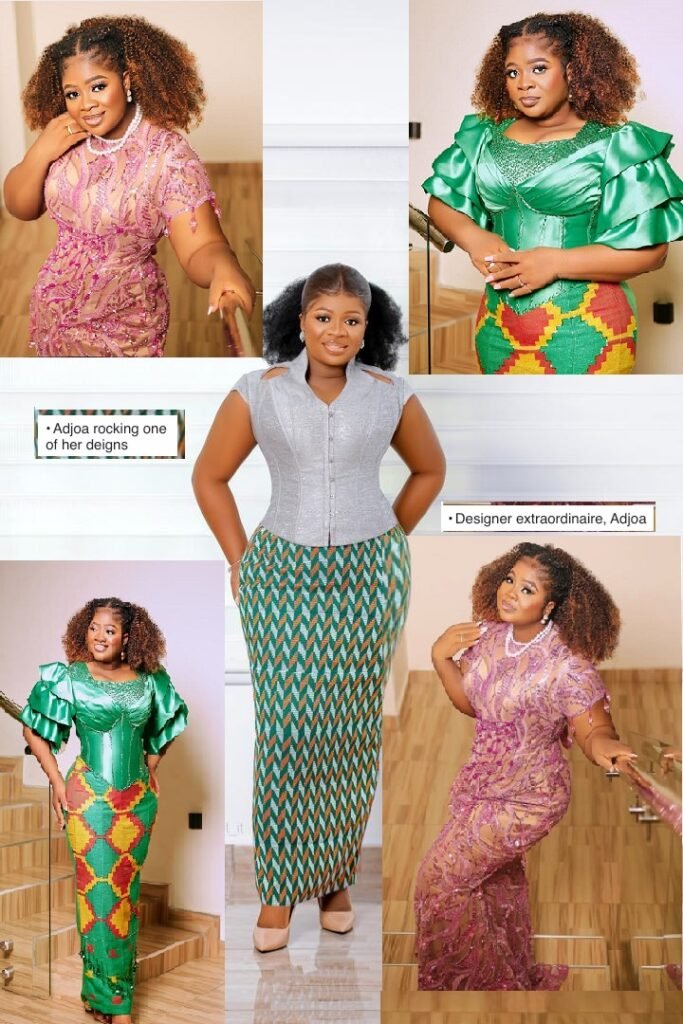
This, therefore, requires a vibrant industry, driven by hardworking designers to meet the increasing demands for such designs.
One of such persons making giant strides and amazing designs for the past 14 years is Mavis Adjoa Yeboah Adjei , a visionary CEO and Creative Director of Adjoa Yeboah Clothing.
Mrs Adjei ventured into fashion designing after giving her cloth to a seamstress to work on for a programme, only to be disappointed on the D-day.
“I was frustrated because I didn’t have anything to wear. Through my frustration, I decided to enroll at the Joyce Ababio College of Fashion. After that I launched my business,” she narrated to The Spectator.
“I’ve always believed in nurturing one’s passion. My love for fashion and design led me to pursue formal education at the Joyce Ababio College where I honed the skills necessary to turn my passion into a thriving business,’ she indicated.

The old student of Ghana Secondary School, Koforidua, says she has this desire to provide a unique blend of fashion outfits in order to satisfy the variegated tastes of a myriad of clientele.
Adjoa, as she is affectionately known, was inspired by colours and considered the body type of clients before making an outfit for her clients.
And her biggest aspiration was to be the number one in the industry, providing bespoke clothing solutions to the generality of mankind as they step into the world of work and social network interactions/ programmes with unparalleled confidence and elegance.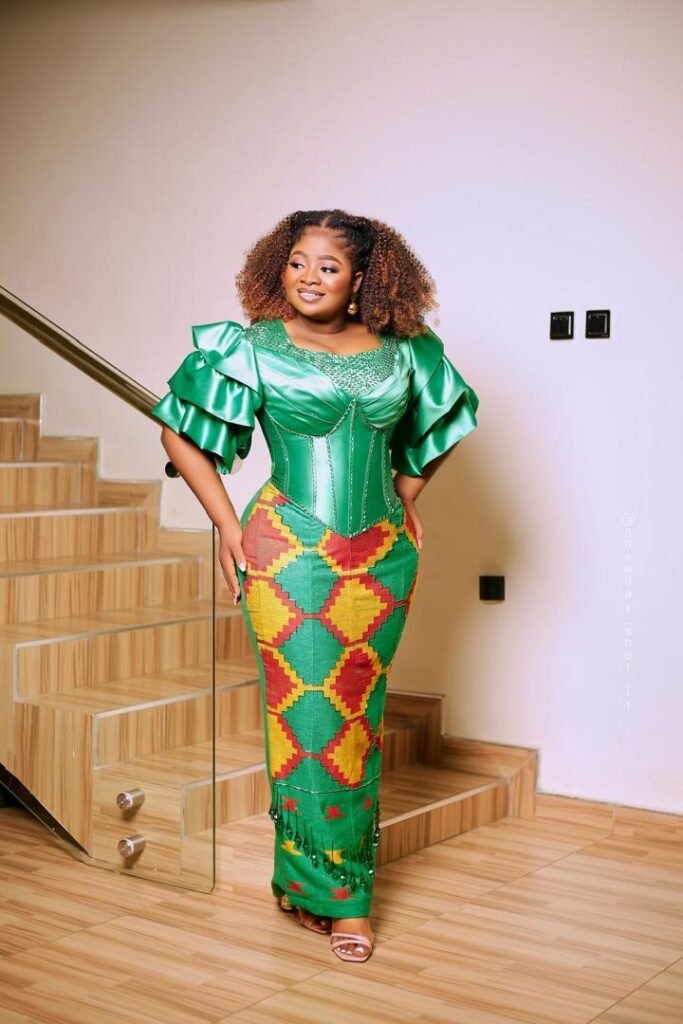
Adjoa’s designs have been worn by both national and international celebrities, including Anita Akuffo, Korkui Salormey, Dentaa Amoateng and Rosalyn Felli, just to mention a few.
Despite the busy schedule with work, Adjoa, a mother of four, carefully plans her activities in order to meet the demands of family life as well.
“I prioritise my time, ensuring that I’m fully present in both my professional and personal life. My family’s support has been crucial in helping me manage these responsibilities, allowing me to excel in both areas.”
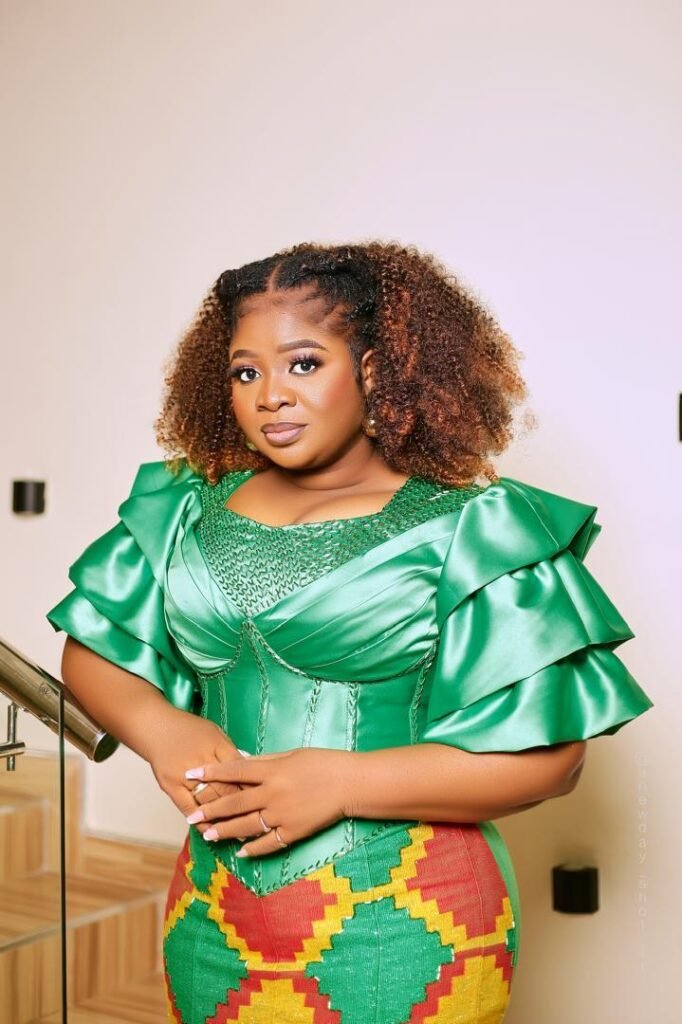
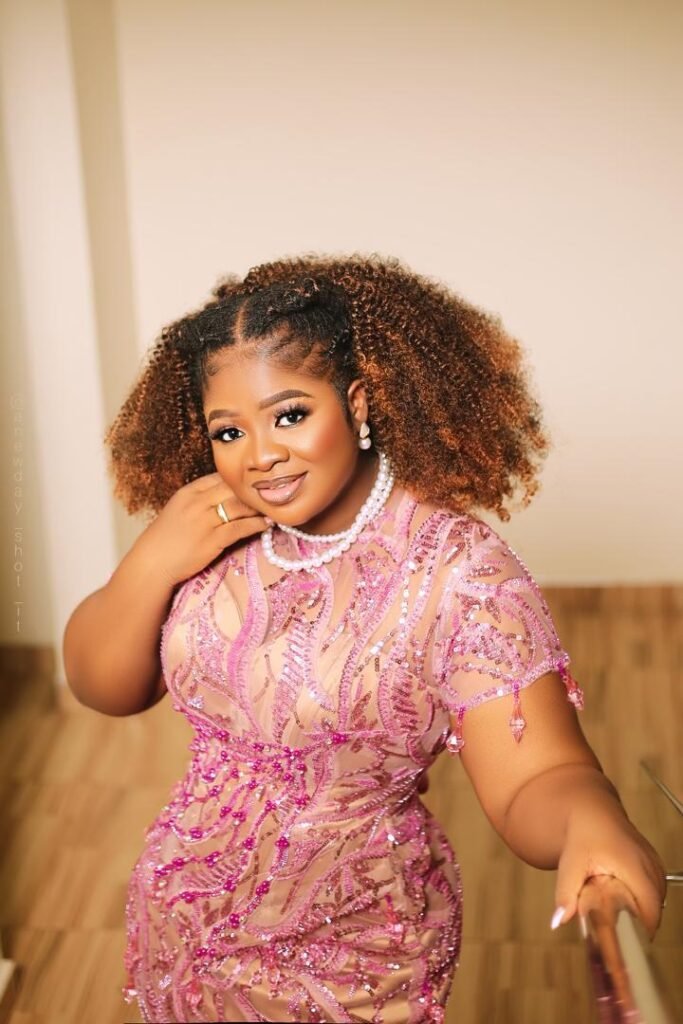
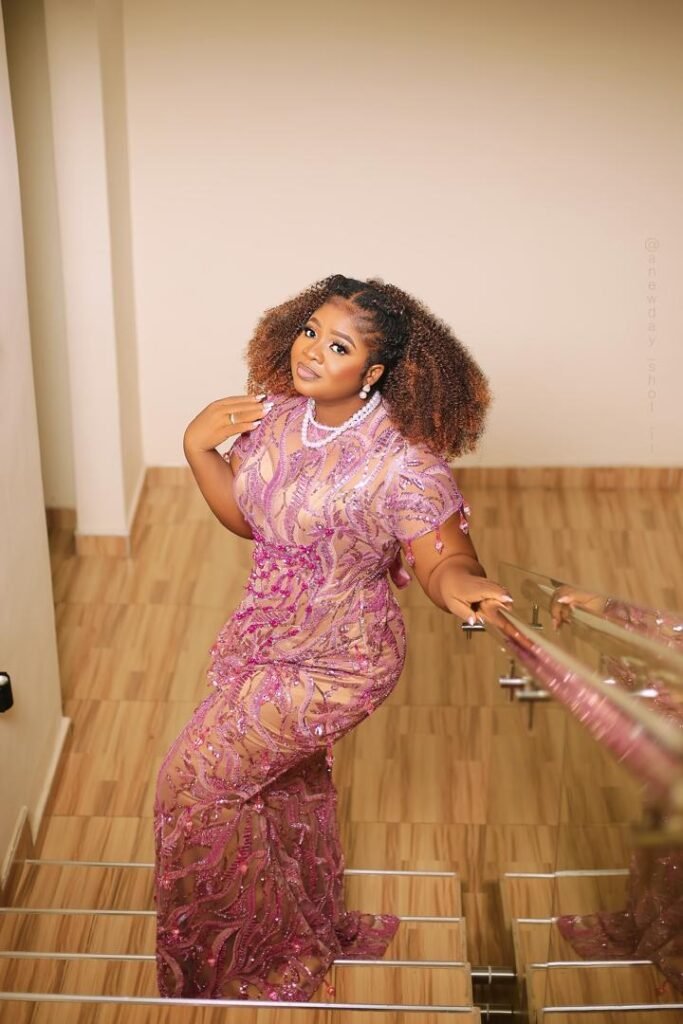
As a result, she has become a mentor to hundreds of successful fashion designers and is a crucial resource for industrial attachment and internship for students studying fashion, textiles, and garment studies at both public and private universities.
Awards
Adjoa Yeboah Clothing was honoured as the Fashion Brand of the Year at the 2019 Women’s Choice Awards due to her outstanding leadership and stellar delivery of fashion outfits in the year under review.
Furthermore, her clothing line has collaborated with Media General/ TV3’s flagship culture and entertainment show ‘Ghana’s Most Beautiful’ as the fashion hub of choice.
She also collaborated with esteemed national and international personalities and fashion brands such as Vlisco (including the Vlisco Ambassador project) to outdoor many spectacular product collections.
Adjoa worked with Vlisco as a fashion designer in 2014 where she designed and clothed Vlisco’s Ambassadors.
She also curated looks for other Vlisco influencers as well as those for Vlisco Radiance Bridal fair. In 2017, she partnered and unveiled Vlisco Capsule Collection in the flagship store at Accra Mall.
Challenges
Like any entrepreneur, she faces challenges, particularly in balancing creative innovation with the daily management of the business. Earlier on, she saw the need for more training to manage the operational side of the brand, which led her to pursue further studies in management.
Again, she was affected gravely by the high cost of production (ie materials, power, and accessories) which affects the cost of the final product.
Aspirations
Adjoa aims to position her clothing line as a globally recognised brand that continues to empower women and inspire the next generation of designers.
She also want to continue advocating for the empowerment of women and children, using her platform to make a positive impact.
Education
She pursued a management degree at the Ghana Institute of Management and Public Administration (GIMPA) to enhance her business skills, and also completed the Women Entrepreneurship and Leadership Africa (WELA) Programme at the China Europe International Business School to learn how to position the brand for global success.
Hobbies
Adjoa Yeboah loves listening to a blend of soul, jazz and traditional music, and likes to travel to the countryside to enjoy nature as a source of inspiration. She also loves to read and watch latest trends in the world of fashion.
Born to Mr George Adjei Anobi and Madam Faustina Kyeremaa, she is the first among four siblings – (three girls and a boy) and hails from Berekum in the Bono region.
Advice
Adjoa wants the youth to focus on what they’re passionate about and dedicate time and resources to mastering their skills. Excellence doesn’t happen overnight—it’s a result of consistent effort and learning.
By Linda Abrefi Wadie
Profile
Albert Litela Obidiaba: The artist who wove Ghana’s soul into the King’s Baton
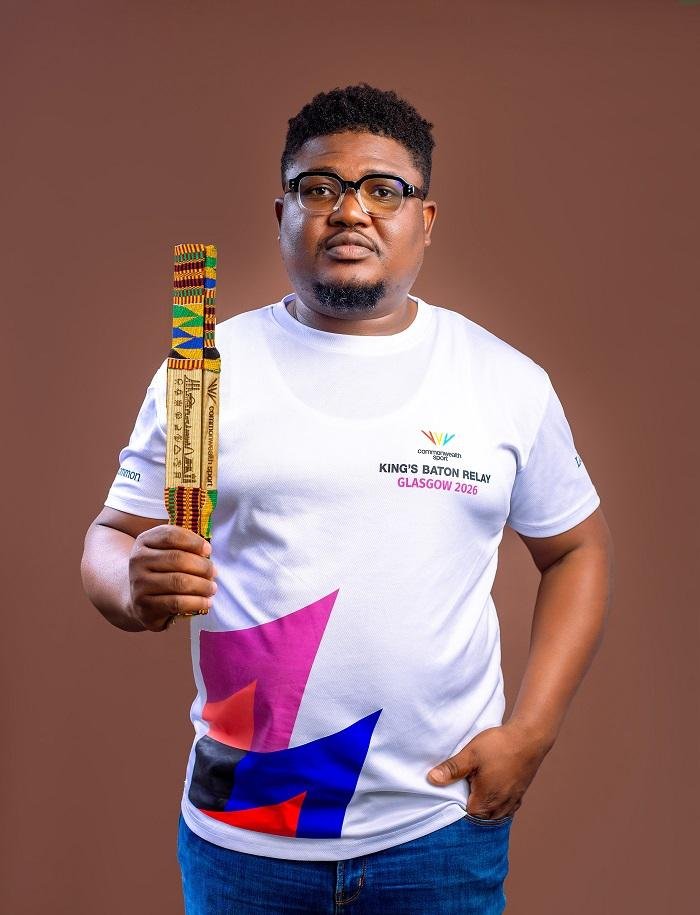
When the world’s eyes turn to the King’s Baton on its global journey, one of Ghana’s most profound artistic stories travels with it. It will be a story of creativity, culture, and national pride crafted by Albert Litela Obidiaba.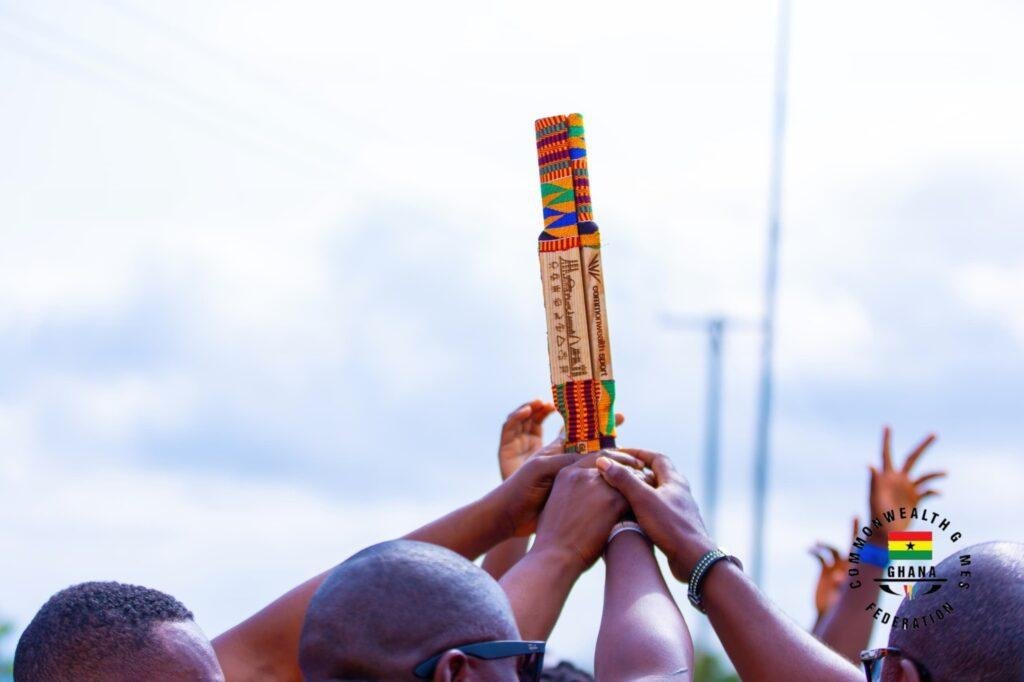
From the quiet town of Old Baika in the Oti Region, Albert’s journey as an artist has always been about telling stories. It is not just through words, but through symbols, textures, and meaning.
“From a young age, I was drawn to the power of art, knowing how colours and textures can capture not just emotion but culture and identity,” he recalls.
Today, his name has become synonymous with innovation rooted in traditional bridge between Ghana’s past and its global creative future.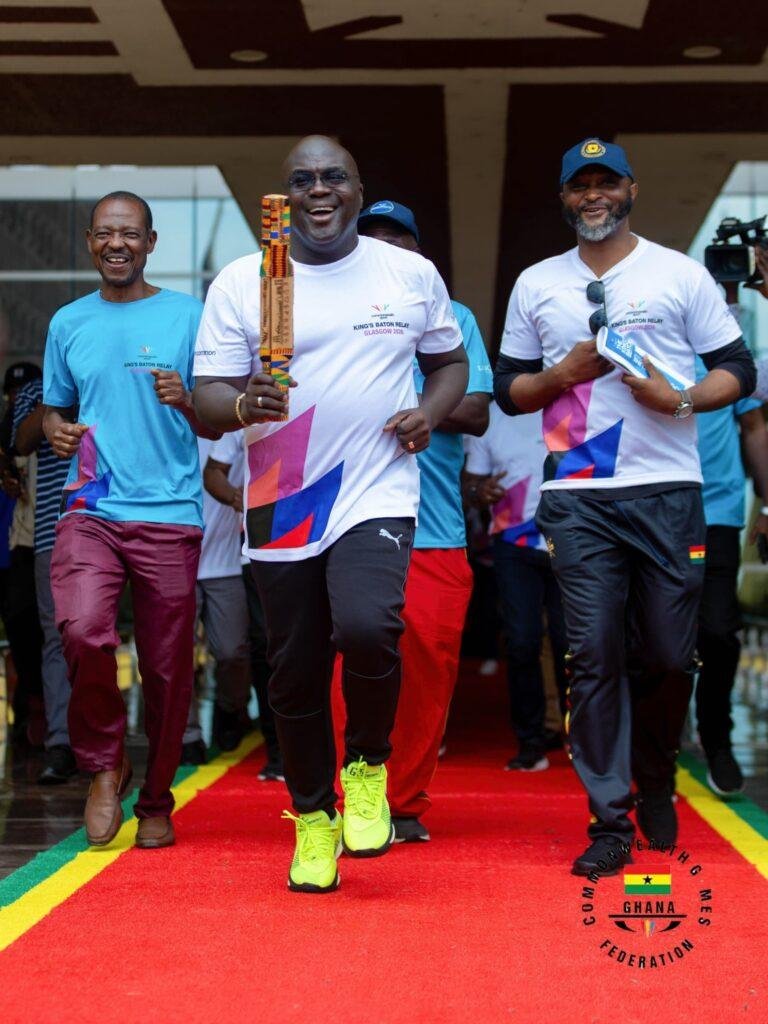
Albert’s love for art was born from curiosity. Surrounded by the vibrancy of Ghanaian culture; the patterns of kente, the stories behind Adinkra symbols, and the textures of daily life, he began sketching and crafting early on.
“Simple things told deep stories,” he says. “That fascinated me.”
As he matured, his art evolved into a personal mission to preserve and reinterpret Ghana’s heritage for a modern audience. His style reflects a seamless blend of culture and contemporary design, each piece a narrative of unity, history, and pride.
“I see art as storytelling through form and symbolism, it should feel rooted in purpose yet speak to today’s world,” he explains.
When the call came to design Ghana’s version of the King’s Baton, Albert saw it as both a national duty and a creative calling.
Recommended by mentors like Mr Charles Osei Asibey, who trusted his talent and understanding of Ghanaian symbolism, he embraced the project wholeheartedly.
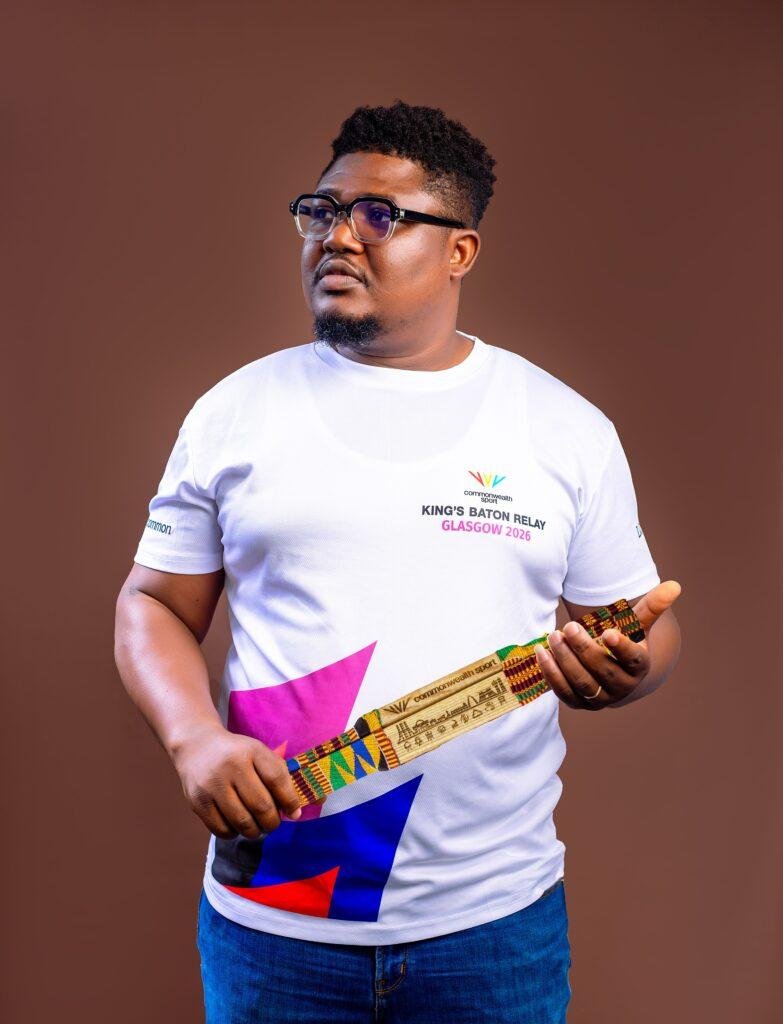
His vision was clear; to create a piece that would embody unity, pride, and the enduring spirit of Ghana.
Drawing from traditional motifs, he integrated textures inspired by kente weaving, representing hard work, continuity, and creativity. The golden tones symbolise strength and dignity, while the contours and natural motifs mirror Ghana’s landscapes and people.
“The King’s Baton had to tell our story of who we are, what we value, and how we see the world, it is more than art, it is identity in motion,” he said.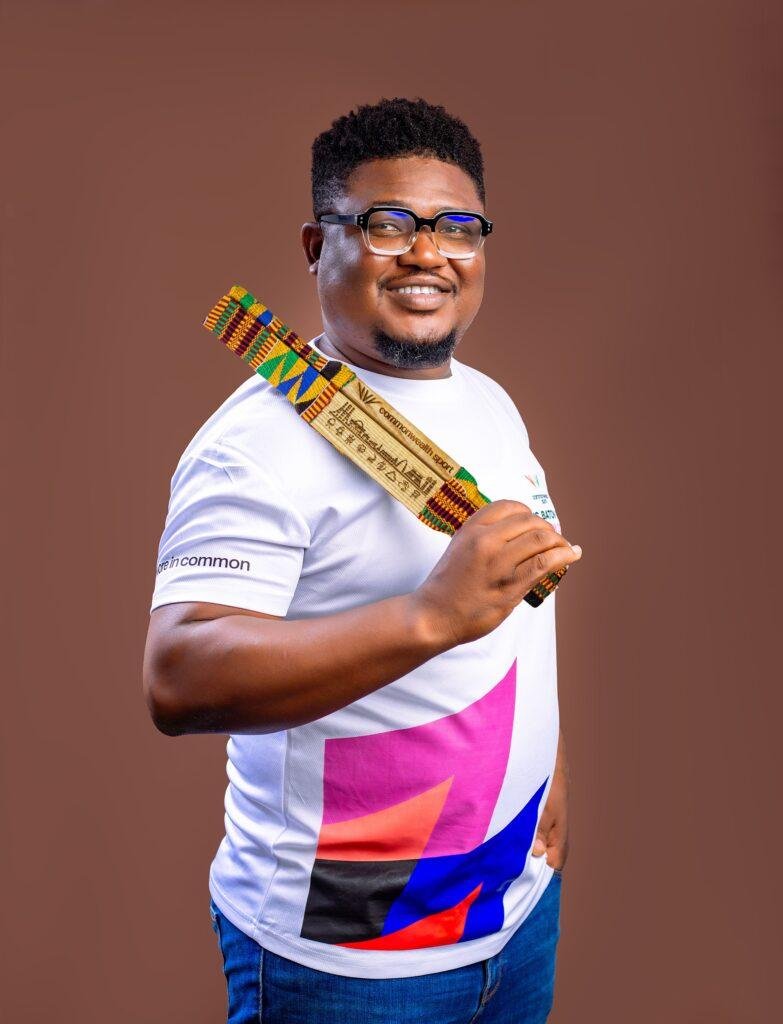
Every etch, every pattern carries meaning. From concept to completion, the entire process took three intense weeks which were filled with research, design sketches, consultation, and collaboration with skilled artisans.
“It was days and nights of work, but a lifetime of meaning,” he says with quiet pride.
Creating a design that represents all of Ghana’s diverse cultures was no small feat. Albert had to balance aesthetics, authenticity, and technology thereby using sustainable wood, carefully treated and certified, to reflect the nation’s commitment to nature and preservation.
“It wasn’t easy finding the right mix,” he admits. “But those challenges pushed me to think deeper. They made the final piece stronger — both artistically and symbolically.”
For Albert, Ghanaian culture is both muse and message. His works echo the values of unity, strength, persistence, and wisdom, drawn from Ghana’s traditions.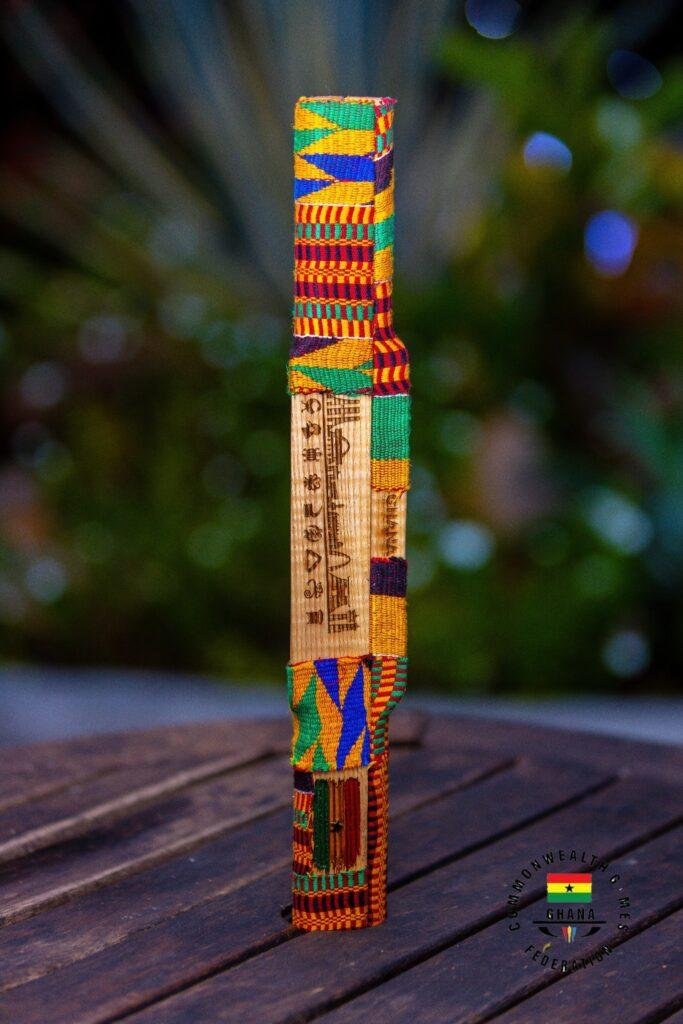
“Art preserves who we are and every line and symbol tells a story of belonging,” he said, and believes art is one of the most powerful tools for building national pride.
Designing the King’s Baton has been a defining moment in his creative journey and that it deepened his appreciation for cultural storytelling. “It taught me that creativity is also a form of service,” he said.
The experience has opened new professional doors, but more importantly, it gave him a renewed sense of purpose making him embrace a call to national duty.
“My soul will be glad even after my days on earth are over,” he said beaming with smiles.
Beyond the King’s Baton, Albert has worked on numerous projects celebrating Ghanaian identity through contemporary art and design. His ongoing works explore symbolism and heritage in new forms which includes blending materials, stories, and styles from across Ghana’s regions.
He is currently preparing projects that continue the conversation the baton began. They are about unity, creativity, and Africa’s evolving artistic voice.
To young artists aspiring to make their mark, Albert’s advice is for them to believe deeply in their craft and that the world is always looking for authenticity “which comes from knowing who you are and where you come from.”
On how he wants to be remembered, he said, “I want to be remembered as an artist who used creativity to celebrate culture and connect people. If my name is remembered as the one who designed Ghana’s version of the King’s Baton, that will be enough, because it means I carried Ghana in my hands, and shared her with the world.”
By Esinam Jemima Kuatsinu
Join our WhatsApp Channel now!
https://whatsapp.com/channel/0029VbBElzjInlqHhl1aTU27
Profile
Survival to service: Margaret Odame Donkor the breast cancer preacher
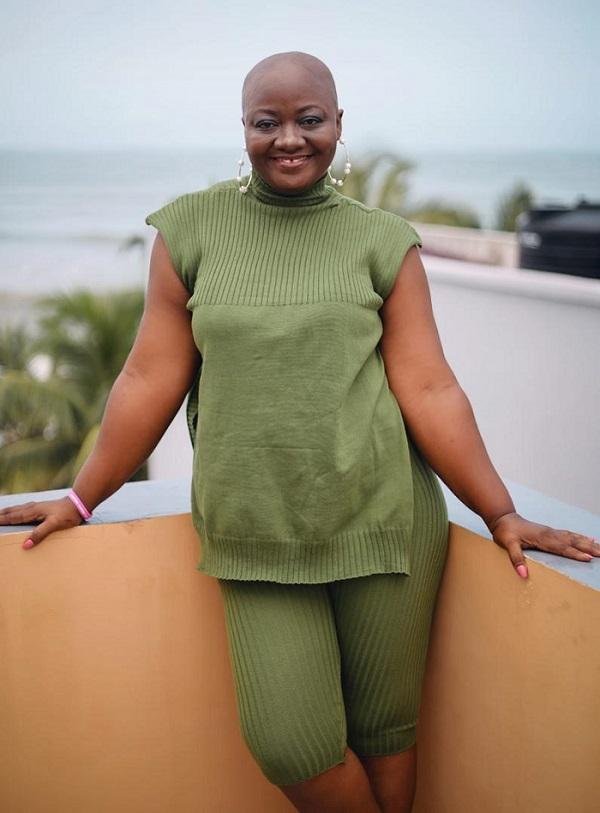
A ‘trotro’ bus heading to Nsawam was filled with the usual sounds from conversations, music, and sometimes a preacher delivering a message.
But when Margaret Odame Donkor rises to speak, she does not preach salvation or sell herbal remedies. Instead, she shares her journey as a breast cancer survivor, urging passengers to examine their breasts regularly, seek medical help early, and never lose hope.
Her pulpit is not a church, but the crowded minibuses of Ghana’s public transport system. Her message is not about repentance, but about survival.
She urges women to check their breasts regularly, encourages men to support their wives during health challenges, and reassures everyone listening that a cancer diagnosis is not the end of life.
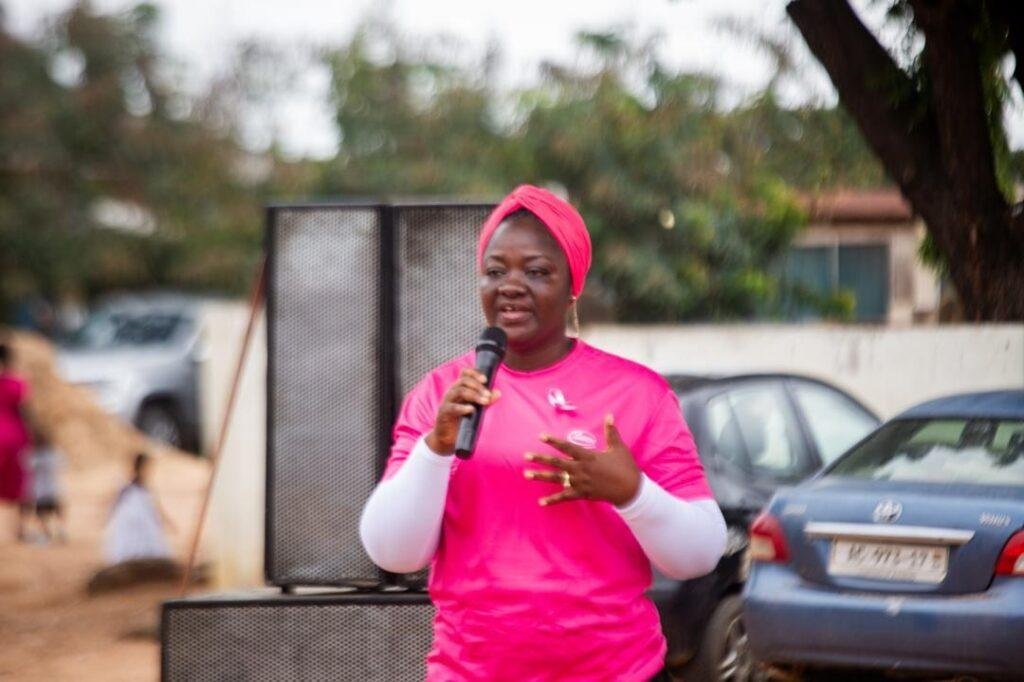
For Margaret, creating awareness is more than a duty-it is a calling born out of personal pain, fear, and triumph.
Her words carried weight because they come from lived experience.
At age 48, Margaret has walked through the valley of fear and pain, battled stage three invasive carcinoma, and emerged not just a survivor but an advocate determined to educate others.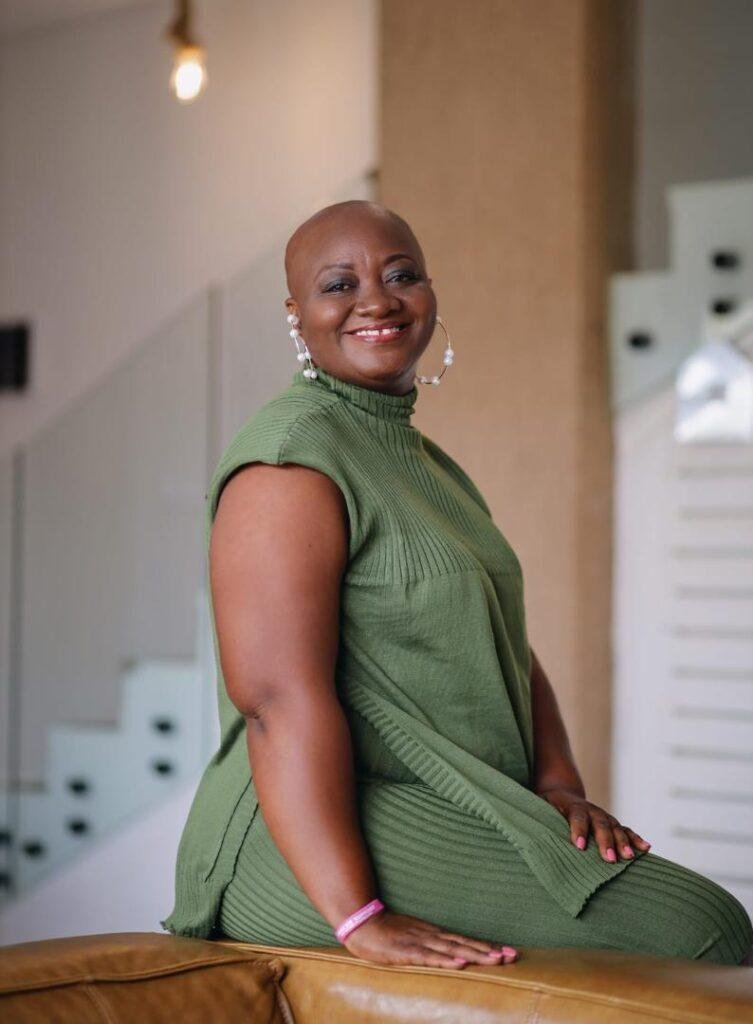
Cancer journey
Margaret’s encounter with breast cancer stretches back decades. At 22, she discovered a lump in her left breast. It was removed and declared benign. Relieved, she skipped regular checks and moved on. Then in 2021, the lump reappeared—this time spreading toward her armpit.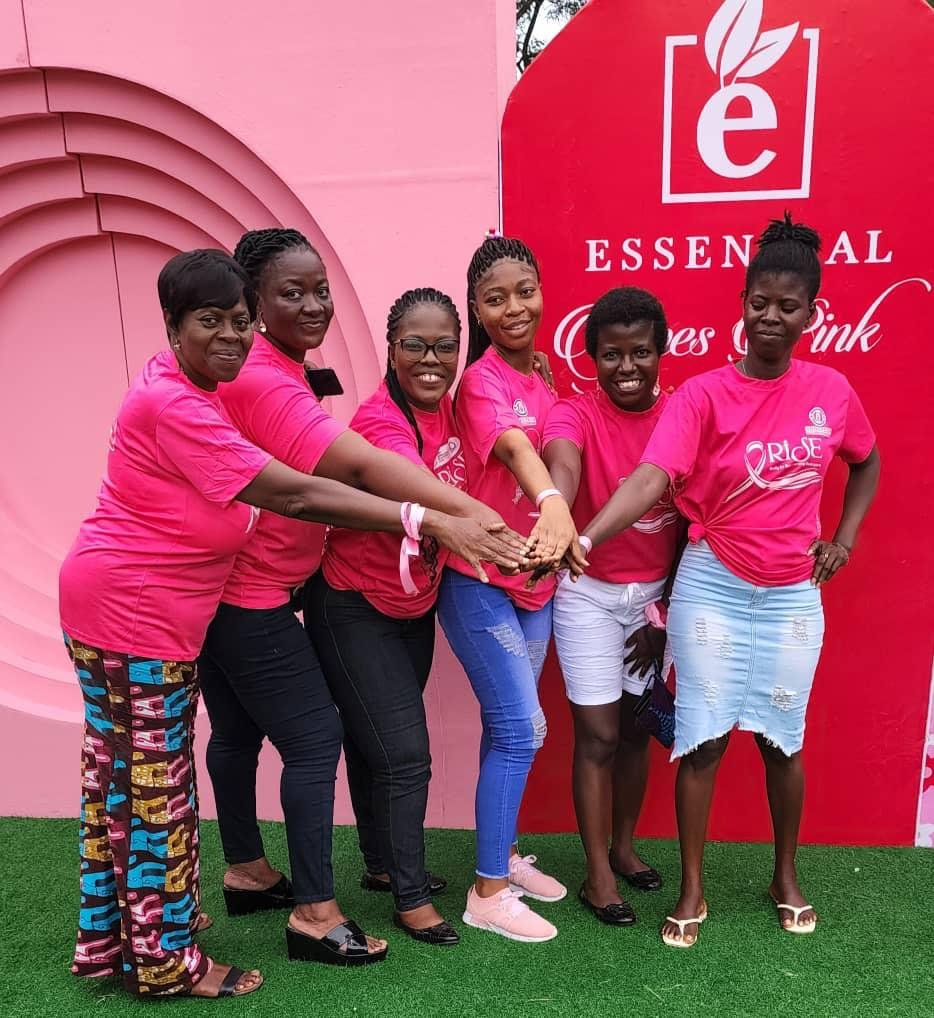
At a church screening in October 2022, doctors detected suspicious lymph nodes. Further tests confirmed her worst fear: stage three invasive carcinoma.
“It wasn’t easy,” she recalls softly. “But my faith in God kept me strong. My husband, children, family, friends, and colleagues formed an army behind me. Their prayers, visits, and encouragement gave me the courage to fight.”
“Be grateful every day because you never know what tomorrow may bring. No one has it all, but with love and support, you can endure,” she stated.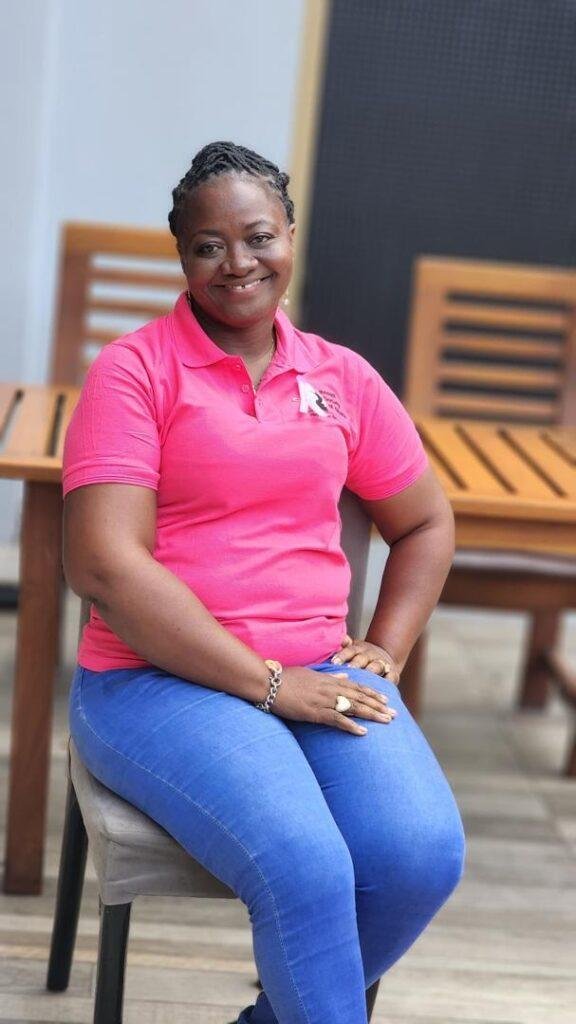
Her greatest fear remains recurrence and not living long enough to see her children graduate and become the people she dreams for them to be.
Before cancer disrupted her life, Margaret had found purpose in interpretation. In 2020, a friend spotted a Judicial Service vacancy and encouraged her to apply. After years of unsuccessful attempts at government jobs, she was reluctant, but she tried once more. This time, she succeeded and was posted to the Eastern Region, her home.
Today, she works at the Nsawam District Court, one of the busiest in the area. On a typical day, she arrives at 7:30am, prepares dockets, and confers with magistrates. She interprets proceedings in Twi, Ga, Hausa, and occasionally Ewe, ensuring that justice was accessible to all.
Her role is demanding. Cross-examinations require her to switch quickly between English and local dialects, while marriages often call for interpreting vows in couples’ preferred languages. Still, she thrives. “The registrars and magistrates I’ve worked with have been amazing. They make the environment very comfortable,” she stated.
Beyond the courtroom, Margaret is also an entrepreneur. In 2017, she founded Nubreed Décor, an events decoration business born from her childhood love for beautifying spaces. She recalls cutting paper decorations as a child and helping her cousin rent out chairs and decorate venues.
Balancing décor with court work was tough, and her health struggles after surgery made it even harder. Radiation left her with persistent rib pain, forcing her to slow down. “Now I hire more hands, which makes business expensive, but it helps me achieve my goals,” she explained.
Her biggest challenge as an entrepreneur remains finance. “The event industry is huge, but I have to work at my own pace and focus on my niche,” she admited.
Cancer changed how Margaret values people and relationships. She learned that those you least expect often become your strongest supporters. She urges families to stand by patients with prayers, encouragement, and financial support, reminding society that a cancer diagnosis is not the end of life.
Her advocacy extends beyond awareness talks. She dreams of establishing a counselling centre for young people and hopes Ghana will expand access to mammograms and radiotherapy centres. “Every patient deserves a chance at survival,” she said firmly.
She urged the youth to live peacefully and be their brother’s keeper, learn to be content and rely on God.
To women, she asserted that, “love yourselves and make breast checks routine while calling on Ghanaians to be open-minded, avoid being judgmental, and show love.
By Esinam Jemima Kuatsinu

 Profile7 days ago
Profile7 days agoAlbert Litela Obidiaba: The artist who wove Ghana’s soul into the King’s Baton

 News7 days ago
News7 days agoDaddy Lumba’s wife, children run to court to injunct December 6 funeral arrangements

 News1 week ago
News1 week agoPresident Mahama to meet Auditor-General, Chief Justice and Attorney-General over misuse of public funds














